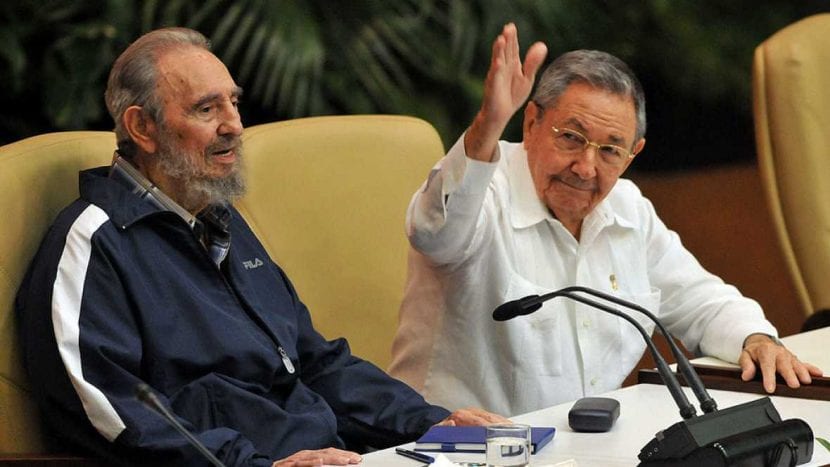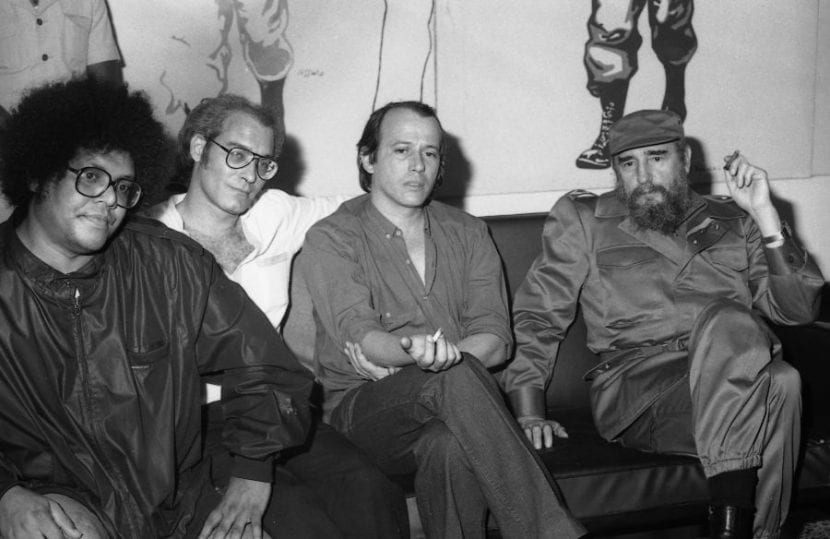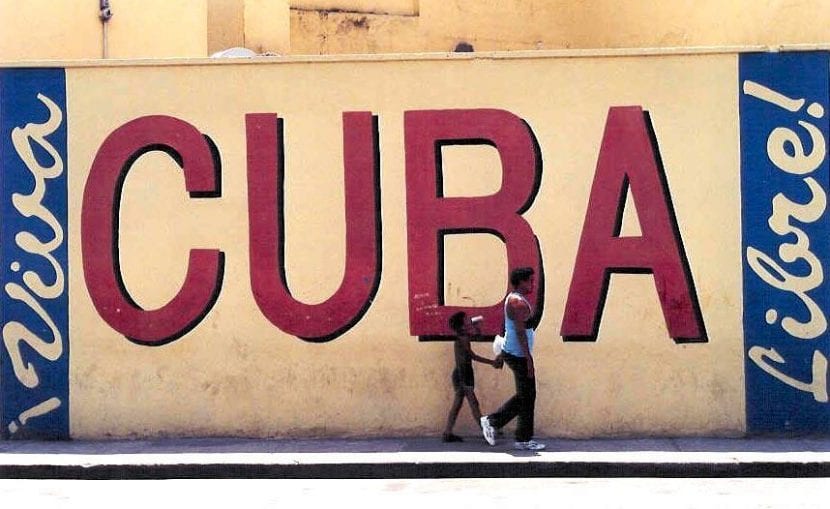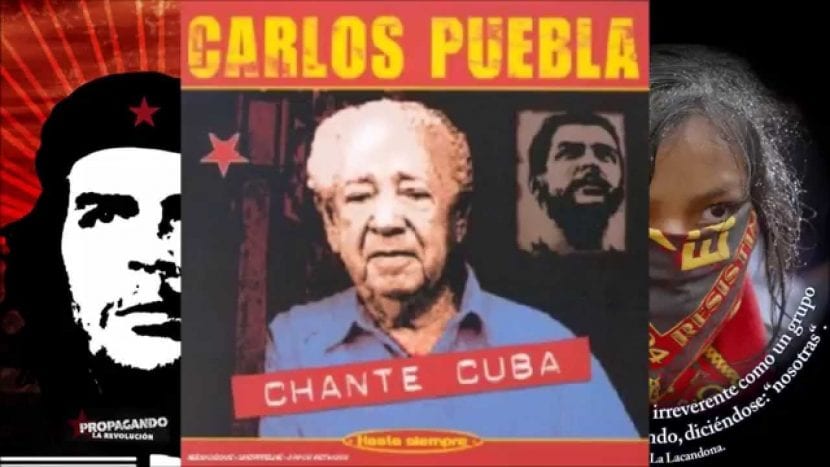
Castro ruled Cuba for more than 40 years, laid the foundations for a revolution that still continues, and promoted an ideological change that made him one of the most important figures in international politics of the XNUMXth century.
The recent news of his death has caused very contradictory feelings, of joy in some cases, and of despair and helplessness in others.
The end of censorship
It was the year 2012 when the Government of Raúl Castro ended the veto that was imposed on many Cuban radio stations on more than 50 artists who had been critical of the regime.
On this "black list" were some well-known artists, such as Celia Cruz, Bebo Valdés or Gloria Estefan.
This censorship prevented for years from being heard on the Cuban island everything that was critical of Castroism, any song or message that is considered detrimental to the revolution.
The same Fidel, who had been very critical in 1963 with groups of that rock and roll, attended in 2001 a concert of the Manic Street Preachers. And he was seen enjoying.
In that recital the theme would sound 'Baby Elian ', which the British band dedicated to the diplomatic conflict between the US and Cuba.
One of its fragments was: "You cannot buy a nation, not even the Miami mafia, we follow a luminous path, which you will never destroy."
The rights of musicians

The rights of writers and artists in Cuba are summarized in a single sentence: in what they will adjust to the Revolution, all the rights. Outside of it or against: there are no rights. Words from Fidel himself.
Before Castro, Cuba was a great leisure center in the Caribbean, with the biggest stars on the international scene performing in concert halls and theaters.
With the operation of the airlift, it was very easy to act in Cuba and the United States on the same day.
On January 1959, XNUMX, everything began to change. The concerts were synonymous with franchised casinos in the United States, rum branches and prostitution. And it had to be eliminated.
Party halls and cabarets in Santiago and Havana were closed.
Wearing long hair, listening to music in English, and wearing denim was asking for trouble. Not even jazz itself resisted the arrival of the revolution.
And the most important names in music on the island began to appear: Bebo Valdés, Celia Cruz, Olga Guillot, Rolando Laserie, Ernesto Lecuona were some of the first deserters of cultural Castroism.
The beginning of change
At the end of the century the first signs of change began. In 1995, the Spanish group Los Sabandeños, published an album. This work would serve as a meeting point between the different sensitivities of the music scene throughout Latin America.
In 1996 an album was produced with Cuban, African and Anglo-American musicians. Buena Vista Social Club would be born, and it would have the importance of reconciling young generations with the most traditional musical heritage.
He also had a lot of rimpact of the visit to the island of Pope John Paul II in 1998. In it, the pontiff called for the opening of Cuba to the world, and it served to stir many consciences.
Despite this, there would still be a long way to go, the mentality injected by the revolution resisted change.
Silvio Rodríguez and Pablo Milanés

The figure of Fidel is the protagonist of many of Rodríguez's compositions. His continuous defense of the Castro movement even led him to confront Pablo Milanés.
Let us remember that Milanés has been one of the most important symbols of the Nueva Trova Cubana movement.
Reviews from Miami
The most important criticisms of the regime came from Miami. In Cuba, Miami is called "Malecón y 90".
When in 2006 the command of Havana passed to Raúl Castro, the Cuban-American singer and producer Pitbull composed a protest song with the title "It's over."
A part of the lyrics of this song says: «Now to start over, I hope the old one falls. Shut up! It's over!".
On the other hand, the rapper Osorbo sang (without leaving the island), “Por ti Señor”, where we could hear: "Because of you my nation feels sad."
In his songs, Osorbo often talks about Fidel's cruelty and his oppression of the Cuban people for many years.
Willy chirino
This Cuban by birth fled the island when he was still a child, along with his family. In the song "Our day is coming" he tells of everything his family had to go through in that trance.
Gloria Estefan, "Cuba Libre"

Among the best known singers in the world, of Cuban origin, is she. His well-known song "Cuba Libre" expresses the desire to return to an island from which he left with his family. with little more than a year of age.
The lyrics of the song express it very clearly: “I want my Cuba libre, so that people can, pa'that my people can dance. Sometimes I don't understand, how much I miss, that despite the years, I still love you, I keep waiting ”.
Luis Aguile
Aguilé was born in Argentina, but lived for many years in Cuba, where he achieved considerable success. With Castro's political and economic changes, he was forced to leave the island.
His song “When I left Cuba” has crossed all borders. In his lyrics we hear: “When I left Cuba, I left my life, I left my love. When I left Cuba, I buried my heart ”.
Charles Puebla

Another of the figures in the history of music that addressed the figure of Castro, with themes like "And this is where Fidel came".
The lyrics are also significant: «Here they thought to continue swallowing and swallowing earth without suspecting that the future was brightening in the Sierra. And cruelly follow the custom of crime to turn Cuba into a gambling den… and that's where Fidel arrived ».
Admiration towards the commander
The Chilean band "Quilapayún" expressed their admiration for the architect of the Cuban revolution with the theme "un son para Cuba",
This theme says: "The island was dark as mourning, but they raised the light as a flag, they had no weapons other than the dawn and it was still sleeping under the ground."